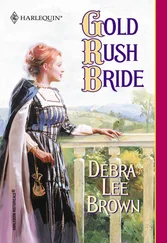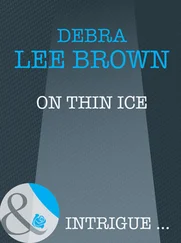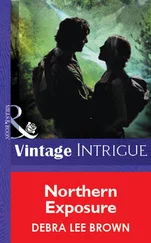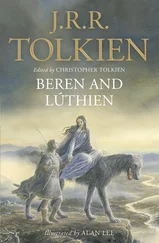A young woman rose from the central table and caught his eye. She was small and blond, exuding a delicate beauty and an air of sensuality that George found rather appealing.
She held his gaze while she poured a draught of mead into a horn, then moved toward him with a feline grace. “Are you thirsty?” she asked, and offered him the drink.
“Aye,” he said, and took it. Were he on his own shores, he’d consider flirting with this one. “My thanks.” He drained the horn and grimaced at the sweetness of the libation.
“You don’t like it?” The woman pouted prettily.
“I prefer a stout ale.”
“My name is Lina,” she said. “Perhaps I can find you some.”
His gaze slid unchecked over her body, and she giggled. A chill snaked its way up his spine.
Rika.
George glanced toward the gaming table and, sure enough, found Rika’s icy stare. Her hand closed over one of the carved stone pieces and squeezed. The message was not lost on Lina, who slipped quietly back to her place at table. Rika released the game piece.
George marveled at the subtlety of this power play. Aye, all had been told not to speak with him, but the islanders had grown lax on that account these past two days, and Rika had seemed not to care. Until now.
The uneasiness he’d read in her eyes just moments before had vanished. The old Rika was back. Frigid. Authoritative. Mercenary.
All a man could want in a bride.
George snorted and looked away. What in God’s name had he gotten himself into? He had to find a way off the island. Lina had been friendly enough. Mayhap there were others who would help him.
He studied the small groups of men and women lounging by the fire and settled on the benches hugging the walls of the longhouse. Some smiled at him cautiously. Others scowled. He was an oddity to them. ’Twas clear the folk of Fair Isle didn’t get much company.
George had lived among them nearly a sennight now, and one fact rang clear from the snippets of conversation he’d been privy to. Some sort of dissention was at work. Not all of the islanders spoke highly of their absent jarl.
Brodir was his name.
Even now, in the dim firelight, George saw two camps taking shape—those who were loyal to Brodir, and those who were not. Two of the loyalists sat watching him from their bench by the fire.
The rougher of the two, Ingolf they called him, honed his knife on a whetstone, turning the blade slowly so that it caught the reddish light.
The other man smiled wide, revealing a nearly toothless mouth, though by the look of him he could not have been much older than George. Thirty at most. Nay, not even.
“Whatcha lookin’ at, Scotsman?” the toothless one said.
George shrugged.
Ingolf continued to eye him silently, then rose and moved toward him, pocketing the stone but not the knife. The toothless one dogged his steps.
“Methinks we should join him,” Ingolf said to his friend. “What say you, Scotsman? Might Rasmus and I have a few words?” They did not wait for his reply, and sat one on each side of him on the bench.
Rasmus, the toothless one, stank of seal oil and mead. George could see immediately that he was Ingolf’s puppet, and would do whatever the man bid him.
Ingolf wiped his knife on his leather tunic, then held it up to the light. “Think you to wed the tall one?” he said, examining the blade.
The question caught George off guard. No one had yet spoken to him of this ill-conceived match between Rika and him, but they all knew. ’Twas the talk of the island.
Mayhap these two, unsavory though they seemed, might help him find an alternative to this sham of a wedding. George searched for the right words.
“Well?” Rasmus said, sliding closer. “Think you to wed her?”
Under any other circumstance, George would have wasted no time in teaching these two heathens a few Scottish manners. He could disarm them both in an instant and have them whimpering for mercy at his feet—and he would have done so had he not been outnumbered nearly twenty to one by their kinsmen.
“Mayhap,” he said, controlling his instincts. “What of it?”
Ingolf eyed him, and his half smile turned to something more dangerous. “I wouldn’t even dream it, Scotsman, were I in your shoes.”
Rasmus fidgeted beside him, and let out a depraved little chuckle.
“But ye’re no in my shoes, now are ye?” George said, and straightened his spine.
“We ain’t,” Rasmus said. “’Cause if we was, we’d be dead men, just like you.”
George studied his fingernails for a moment, then shot them each a steely glance. “Are ye threatening me, lads?”
Neither replied.
The room felt suddenly over warm, the air close and rank with the stink of them. George was aware of other eyes on him.
Lawmaker’s.
Was this another test then? Like that morning on the beach with young Ottar? The old man watched George closely, as he had that day, waiting to see what he would do.
Lawmaker’s was not the only gaze trained to him. Two others—young men he’d overheard speaking ill of their jarl—watched him, as well.
Hang the lot of them. No one threatened him.
No one.
“The tall one belongs to Brodir,” Ingolf said finally.
George narrowed his eyes at the man. “What d’ye mean?” He couldn’t fathom Rika belonging to anyone.
“If you touch her…” Ingolf slid a dirty finger along the blade of his knife, leaving a crimson smear of blood on the hammered metal. “Be warned,” he said, and stood.
Rasmus grinned over his shoulder as the two of them snaked their way to the door of the longhouse and disappeared into the night.
Lawmaker resumed his conversation with Hannes. The two young dissidents returned their attention to their mead horns, and the mood lightened.
George glanced at Rika and saw that her game with Ottar was finished. She sat rigid, her expression cool, her eyes unreadable.
What in bloody hell was going on here?
Rika poured a thin stream of seal oil onto a rag and worked it into the chain mail of her brother’s hauberk. The armory had been quiet since Brodir went a-Viking last summer. Rika enjoyed the solitude, the smells of leather and burnt metal, the icy kiss of the mail where it rested against her knee.
Ottar worked beside her, carving an ancient design into a shield he had fashioned from a timber hatch that had washed ashore after a shipwreck last year.
The day was clear and cold, and Ottar had built a small fire in the smith’s brazier in the corner of the small hut. Rika set the hauberk aside and warmed her hands.
“Why do you marry the Scot?” Ottar said abruptly.
She turned to him, prepared with an answer, knowing he’d ask her sooner or later. “There are things I must—”
“If you’ve need of a husband, why not me?” He paused and met her eyes, which widened before she could disguise her shock.
“Ottar, you don’t understand.”
“I do. You need protection—from Brodir.” He gouged a knot in the wood, abandoning the delicate skill required for such art. “I will safeguard you. You think of me as a child, I know. But I’m not.”
Rika smiled and placed a hand over his to quell his attack on the ruined shield. “Nay. I have eyes, and I see you are a man.”
He smiled, and in that moment she thought he looked more boyish than ever. One day the dark down on his chin would sprout into a man’s beard, but not this year.
“Then marry me, instead,” Ottar said, and set the shield and the awl aside. “We’re well suited to each other. You cannot argue that.”
Nay, she could not, for they spent a good part of every day together and had been naught but the best of friends for as long as she could remember.
Читать дальше












